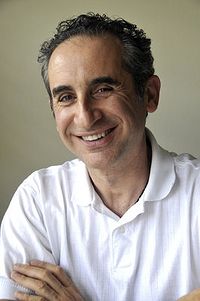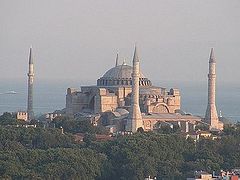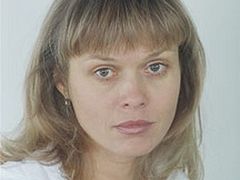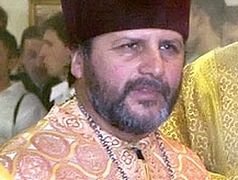SOURCE: Marietta Daily Journal
By Greg Garrison
Karim Shamsi-Basha spent his childhood in Damascus, Syria, and when he tells that to Christians, they ask if he knew the road to Damascus where the Apostle Paul converted to Christianity.
Shamsi-Basha grew up a Muslim, so for a long time he didn’t know what they were talking about. “I would say, ‘Yes, we have roads in Damascus.’”
Finally someone told him he should read about Paul in the Book of Acts.
“The first time I read the ninth chapter of Acts, I said, ‘Whoa! That’s where I grew up,’” Shamsi-Basha said. “Syria is throughout the Old Testament too. Damascus was Damascus before the Bible was the Bible.”
Now Shamsi-Basha has written a book about leaving Syria, and about leaving Islam. It’s called “Paul and Me: A Journey to and from the Damascus Road, From Islam to Christ.”
He has found his own road away from Damascus, but in many ways his heart is still in Syria. His home country has been wracked by civil war for the past two years.
Shamsi-Basha said the situation in Syria is complicated, since the rebels, including some terrorists aligned with al-Qaida, may be worse than the country’s dictator, Bashar al-Assad.
“They don’t have a Martin Luther King Jr.,” Shamsi-Basha said. “It’s divided up into all these factions. I really don’t know what the solution is. Why does it have to come to shooting? I don’t understand the human need for violence.”
His two sisters are still practicing Muslims who wear hajib — the scarf that covers a Muslim woman’s hair. One lives in New York City and one still lives in Damascus. “I talk to her just about every day,” he said of his sister in Syria. “She’ll say things like, ‘Today they bombed about two streets over.’ And I’ll say, ‘I’m glad you’re okay.’ She wants Assad to stop. She wants the rebels to stop.”
The family wants her to leave Damascus, but that’s not easy. “We’re trying to get her a visa,” Shamsi-Basha said. “There’s about a million Syrians trying to get visas right now. There are 2 million Syrians in refugee camps in Lebanon and Jordan.”
Shamsi-Basha left Syria at 18. He graduated from the University of Tennessee and moved to Birmingham in 1989 to work as a photographer for the Birmingham Post-Herald. In 1992, he was covering a fire at Independent Presbyterian Church when he collapsed in the parking lot. He suffered a brain aneurism that could have left him permanently paralyzed.
He was able to fully recover after months of therapy.
“Surviving that and making it all the way back is miraculous,” Shamsi-Basha said.
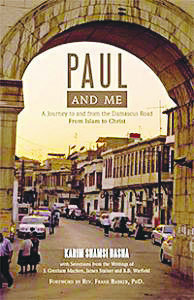
“It’s a love story,” he said. “God loves every person on the planet the same. He doesn’t love believers more than non-believers. He just cries and watches what we’re doing to each other. Why has love taken a backseat to violence? Where did we go wrong?”
Shamsi-Basha was born in Damascus in 1965 and grew up speaking Arabic as his native language, but learned English in school.
During his childhood, Damascus was known for religious tolerance, Shamsi-Basha said. “It was a beautiful city, the oldest continuously occupied city on the planet.”
As a child, he didn’t think about politics.
“We lived under a dictator,” he said, referring to Hafez al-Assad. “For a kid, freedom is not on the radar.”
The city was mostly Muslim, but had about 15 percent Christians, he said.
“It was a very open, very tolerant society,” he said. When he would have dinner at a Christian friend’s house, the family would hold hands and pray, in the name of God, rather than in Jesus’ name, so as not to exclude him.
As a teen, he was a devout Muslim, praying five times a day. But he envied his Christian friend’s faith; they would talk for hours about religion. “We were obsessed with it,” Shamsi-Basha said. “His whole life revolved around grace and freedom. Mine was the law. In Islam, every sin is counted against you, and every good deed is counted for you, and you weigh them out. Love is not in the picture. In Christianity, love is the picture. I never understood the grace of Christianity until I became a Christian. It’s hard to understand grace when you come from the law. Love is mentioned in the Quran a few times. Fear is mentioned a lot. I didn’t want a God of fear. I wanted a God of love.”
Shamsi-Basha said his curiosity about religion got him in trouble.
“I asked a lot of questions about Christians,” he said. In eighth grade religion class, he got in trouble with the teacher for posing a troublesome question: “Did God make man, or did man make God?”
The teacher paddled him, then the principal paddled him and sent him home with a note.
His father was more understanding. “That’s an interesting question,” he told his son. Then he told him, “It’s a lot easier to live knowing that God made man.”
Shamsi-Basha said he replied to his father, “I don’t want just easier to live.”
His father encouraged him to explore spiritually.
Shamsi-Basha said he began writing the book as a series of letters to his father in heaven. “I never told him that I converted,” Shamsi-Basha said. “I regret that. I was afraid his pride would be shattered.”
He rarely discusses his conversion to Christianity with his Muslim family, although they are all aware of it. “I just choose to let them see it in me,” he said. “My mom knows. She’s fine with it.”
The book was not meant as a knock on the faith he was raised in, he said.
“It doesn’t say anything bad about Islam,” he said. “All I’m preaching is peace and love. Christianity is all about love.”
Shamsi-Basha grew up 45 minutes from the Israeli border, a fact that weighed heavily in Syrian society. “I grew up being told to hate the Jews every day,” he said. “We had to go out in the street and shout, ‘Death to the Jews.’ It took me 10 years to come to love them. I love the Israelites of the Bible. I don’t love the Israeli government. They’re not doing it right, and the Palestinians are not doing it right. Both sides are doing horrific things to the other. When you grow up in a refugee tent and all you know is cloth walls, what are you going to do? Any human suffering caused by another human is wrong. We were told that they took our land. But wasn’t it their land before it was our land? Nobody really knows whose land it was. We are all on this tiny ball hurtling through space and we’re really here to love God and feel his love for us, instead of hate each other.”
Shamsi-Basha met a Christian publisher, Michael Gaydosh, the founder of Solid Ground Christian Books, and told him about being from Damascus, and becoming fascinated with the Apostle Paul, to the point of converting from Islam to Christianity.
“Now the road to Damascus is my life,” Shamsi-Basha said. Gaydosh was fascinated by the story.
Solid Ground published “Paul and Me: A Journey to and from the Damascus Road from Islam to Christ,” this year, and it is available on Amazon.com, or through the web site, Paulandme.com.

